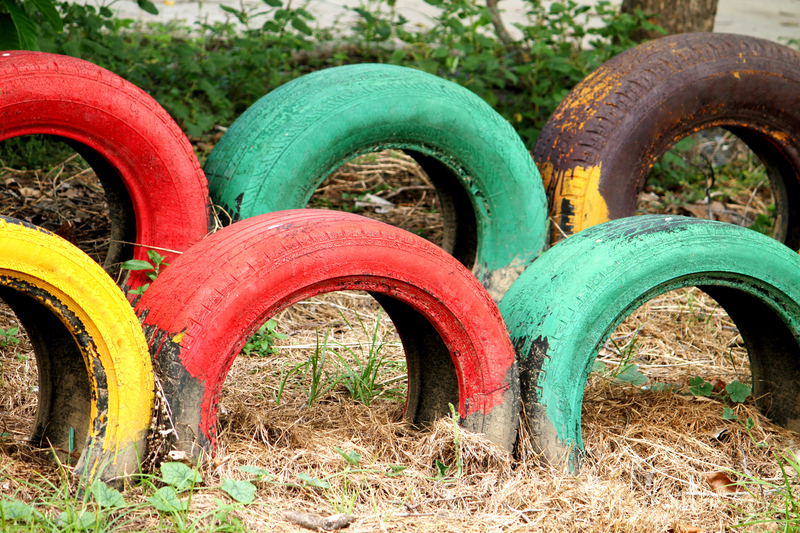Eco-Conscious Ways to Dispose of Used PPE Items
The rise in personal protective equipment (PPE) usage has undeniably been crucial in safeguarding public health. However, the surge in discarded masks, gloves, face shields, and gowns has contributed to a mounting environmental concern. Proper eco-conscious PPE disposal is essential to protect not just ourselves, but the planet as well. In this article, we delve into sustainable ways to dispose of used PPE items, offering actionable solutions and eco-friendly alternatives for individuals, businesses, and communities.

Understanding the Environmental Impact of Used PPE
The majority of PPE items--disposable masks, gloves, and gowns--are made from plastics such as polypropylene or polyvinyl chloride (PVC). These materials do not decompose easily, lingering in landfills and eventually breaking down into microplastics, which harm wildlife and contaminate water sources. A study published in 2022 estimates that billions of masks have entered the ocean since the start of the COVID-19 pandemic, where they threaten marine life and contribute to global pollution.
- Landfill overflow: Most used PPE still ends up in landfills, contributing to the global waste crisis.
- Wildlife hazards: Discarded gloves and masks can entangle animals or be ingested, leading to injury or death.
- Microplastics: Over time, PPE breaks down into microscopic particles that pollute air, soil, and water.
These alarming facts underscore the urgent need for eco-friendly PPE disposal methods. Let's explore the best practices available today.
Best Practices for Eco-Conscious PPE Disposal
1. Proper Segregation of Used PPE
Before considering disposal, it is vital to separate used PPE from general household waste. Used masks or gloves that may be contaminated should never be recycled together with clean recyclables, as this increases the risk of spreading pathogens and renders the recycling batch unusable.
- Designated bins: Use clearly labeled trash cans or sanitary disposal bags for used PPE.
- Sealing used PPE: If no medical waste bin is available, seal used items in a separate bag before disposal with general waste to minimize contamination.
2. Explore PPE Recycling Programs
Although most curbside recycling programs do not accept PPE due to contamination risks and material challenges, several specialized initiatives have emerged:
- TerraCycle: The PPE Recycling Boxes from TerraCycle accept disposable masks, gloves, and other PPE. Once filled, these are shipped to specialized facilities where PPE is safely cleaned, shredded, and turned into plastic pellets for reuse.
- Local Pharmacies and Hospitals: Some healthcare facilities now offer collection points for used PPE. Inquire locally for such options.
- University or Community Drives: Organized PPE collection drives reduce litter and encourage responsible disposal.
By participating in these programs, you can help ensure your used PPE is not only kept out of landfills but also given a new life through recycling.
Reduce, Reuse, and Replace: Sustainable PPE Alternatives
Switch to Reusable PPE
Perhaps the most eco-friendly method for PPE waste management is to switch from single-use items to reusables where possible. Options include:
- Cloth masks: Reusable fabric masks that can be washed and reused numerous times significantly reduce waste.
- Washable gowns and shields: Many industries now offer protective gear made from durable, sanitized materials.
- Compostable gloves: Look for biodegradable or compostable gloves made from natural latex or plant-based materials.
Tip: Ensure that reusable PPE meets the necessary safety standards for your specific needs.
Encouraging Responsibly Sourced PPE
Increasingly, manufacturers are producing PPE from sustainable or recycled materials. By supporting such products, consumers and organizations encourage a market shift away from petroleum-based plastics.
- Biodegradable Masks: Made from plant-fiber fabrics, these masks can break down in commercial composting facilities.
- Recycled Content PPE: PPE items composed in part from recycled plastics or sustainable resources.
Innovative Solutions in PPE Waste Management
PPE Upcycling Initiatives
An emerging strategy is upcycling used PPE into new products.
- Paving materials: Projects in countries like India and the UK are experimenting with incorporating shredded masks and gloves into asphalt for road construction.
- Construction panels: Innovative startups have found ways to integrate PPE plastics into lightweight building materials.
- Art installations: Some environmental artists are repurposing PPE into large-scale public artworks to raise awareness of plastic pollution.
Advanced PPE Waste Processing Technologies
Modern waste treatment facilities can now process contaminated medical waste safely. Some of the technologies include:
- Plasma gasification: This process uses high temperatures to break down plastic PPE into water, ash, and a synthetic gas which can be used for energy.
- Chemical recycling: Converting plastics back into raw materials for new products.
How Companies and Healthcare Facilities Can Implement Eco-Friendly PPE Disposal
Establish Clear Guidelines and Training
For businesses, providing education on sustainable PPE disposal methods is crucial. This can include:
- Visible signage: Use posters and labels to direct employees and the public to the right bins.
- Employee training: Integrate waste management practices in onboarding programs.
- Reporting: Track and report PPE waste to identify areas for improvement.
Partner with Certified PPE Waste Disposal Companies
Work with licensed waste management providers that offer eco-friendly solutions, such as:
- On-site sterilization units to safely process used PPE before recycling or disposal.
- Bulk PPE recycling pickups for large organizations or events.
What Individuals Can Do for Eco-Conscious PPE Disposal
- Civic volunteerism: Participate in PPE clean-up drives or start your own neighborhood campaign.
- Optimize mask use: Don't throw away reusable masks after short use; wash and reuse as often as possible.
- Community education: Share PPE disposal tips with family and friends.
- Support environmental legislation: Advocate for policies that incentivize responsible PPE disposal and the development of sustainable PPE alternatives.
Challenges of Eco-Conscious PPE Waste Disposal
The Limitations of Recycling PPE
Despite growing interest in eco-friendly PPE disposal, the reality is that recycling facilities are often not equipped to handle contaminated plastic PPE. The protocols for disinfection, separation, and processing require specialized infrastructure. As a result, most PPE still ends up in general waste streams.
Supply Chain and Cost Issues
Switching to biodegradable or reusable PPE can be more costly upfront and may not be feasible for everyone, especially in healthcare settings with very high consumption rates. Nevertheless, with technological advancement and market uptake, prices continue to fall.
Risk of Improper Disposal
The improper disposal of used PPE remains widespread. Littered masks and gloves often end up on streets, parks, and water bodies. Strong public education and convenient collection systems are key to fostering behavioral change.
Actionable Tips: Eco-Conscious Steps for Everyday PPE Disposal
- Minimize single-use PPE: Use reusable or washable alternatives whenever possible.
- Cut ear loops: Before throwing away masks, always cut the ear loops to prevent wildlife from getting entangled.
- Check for specialized recycling: Search online for local PPE recycling or hazardous waste drop-off events.
- Store used PPE securely: Keep a small container or disposable bag for storing used PPE until you reach the appropriate disposal site.
- Promote and share resources: Encourage local businesses, schools, or offices to adopt better PPE waste management practices.

The Future of Sustainable PPE Waste Disposal
As the world continues to adjust to new health and safety standards, developing eco-conscious ways to dispose of used PPE items is more important than ever. The evolution of biodegradable materials, government initiatives, and public awareness campaigns all signal hope for a cleaner future.
Global Initiatives Making a Difference
- The United Nations Environment Programme (UNEP): Advocates for sustainable PPE design and global collecting mechanisms.
- World Health Organization (WHO): Provides guidelines for safe medical waste treatment and reuse.
- Community-based innovations: Grassroots projects in Asia, Africa, and Latin America collecting and recycling PPE waste into useful products.
The responsibility for eco-friendly PPE disposal rests on everyone--from manufacturers to end-users. With concerted effort, advancing technology, and stronger policies, the goal of a greener, healthier planet is within reach.
Conclusion: Choose Planet Over Plastic
The COVID-19 pandemic and subsequent surge in PPE use have brought fresh attention to the intersection of public health and environmental responsibility. By adopting eco-conscious PPE disposal techniques, supporting innovative recycling projects, and advocating for sustainable product design, we can help prevent a wave of pollution while still protecting human life.
Remember: Every eco-friendly action, however small, is a step towards a healthier world--for people and the planet alike.
For more resources on how to dispose of PPE sustainably or to find your nearest recycling location, check with your municipal government, local environmental agencies, or visit PPE recycling program websites.